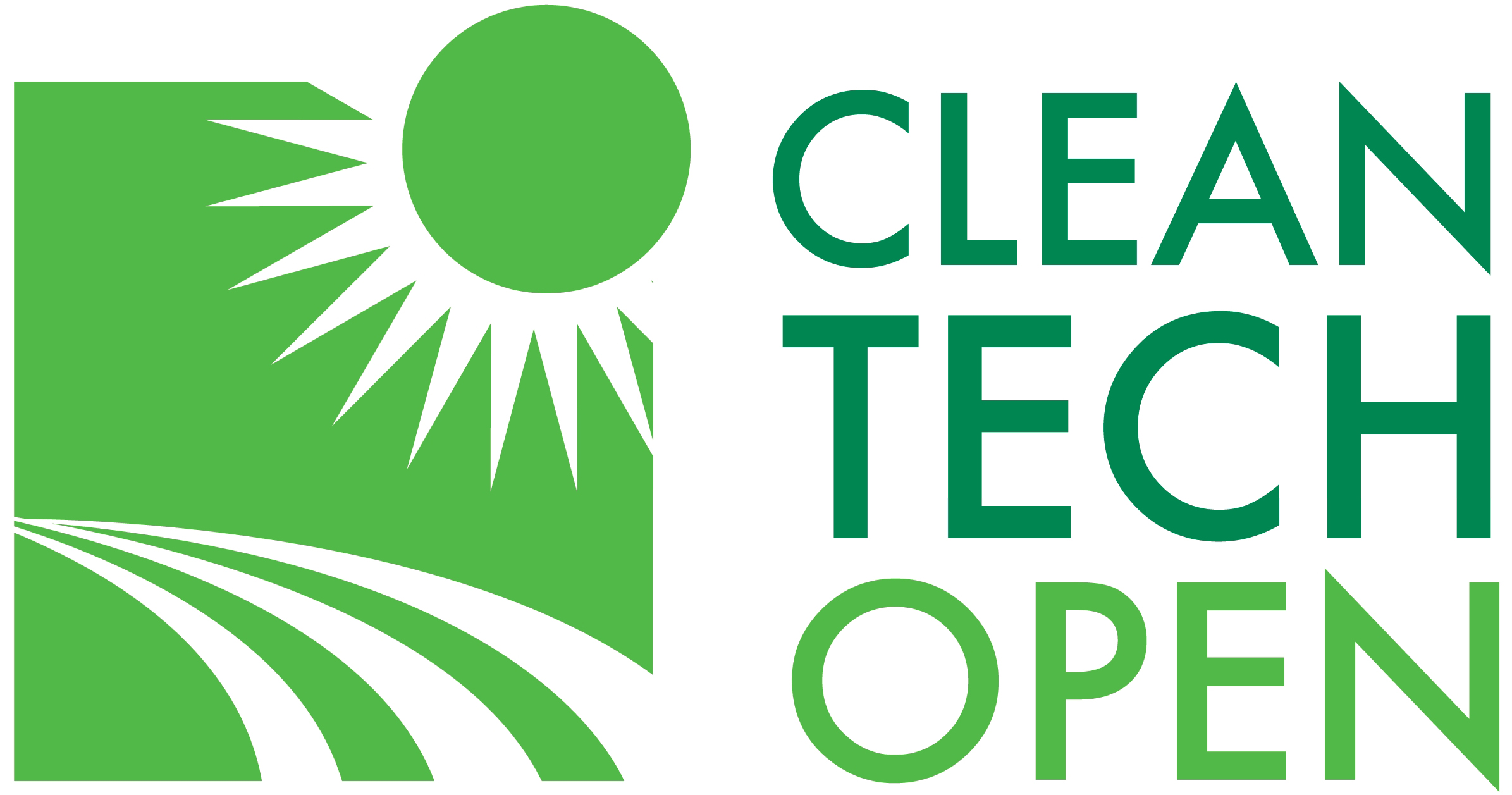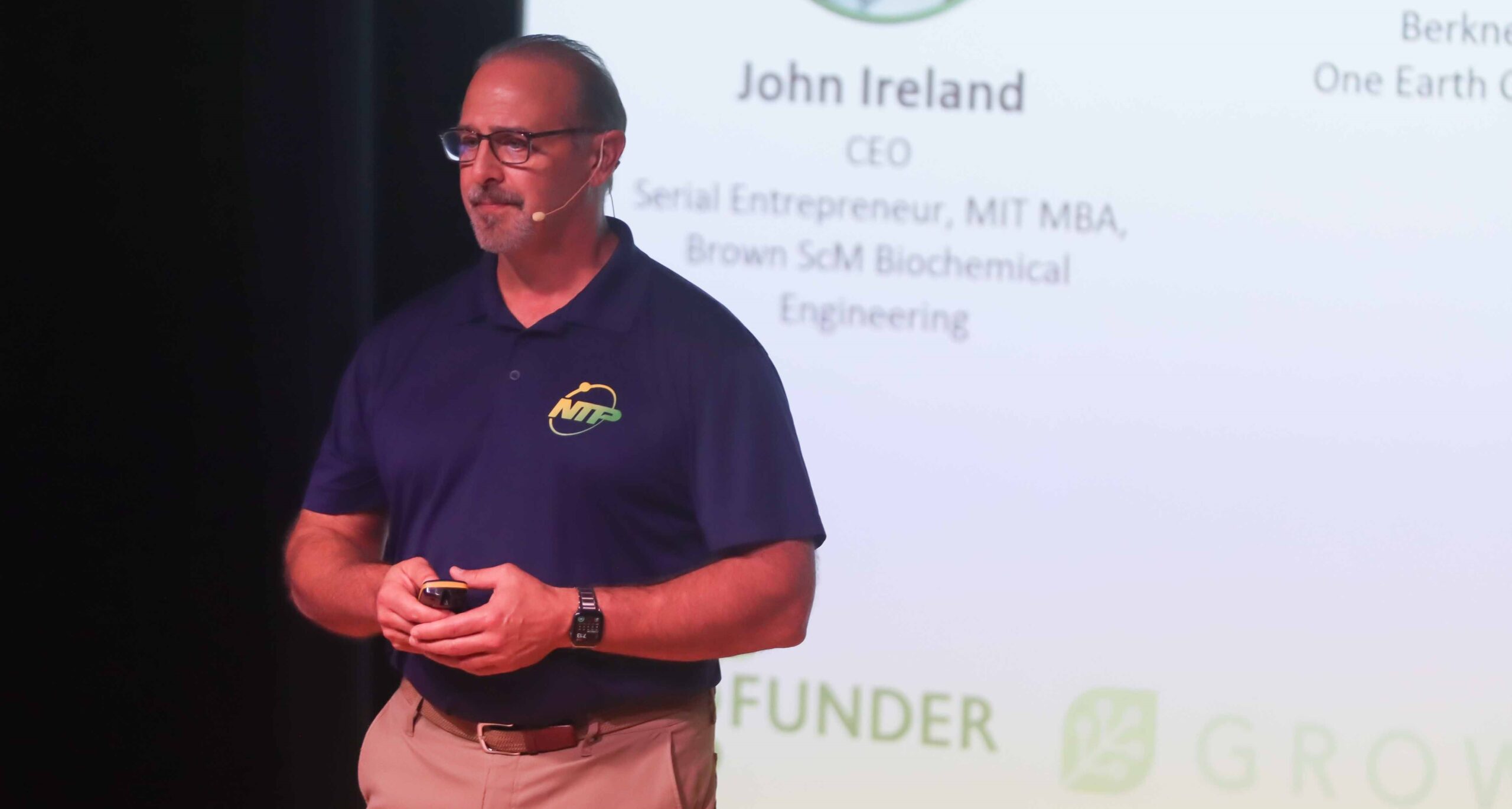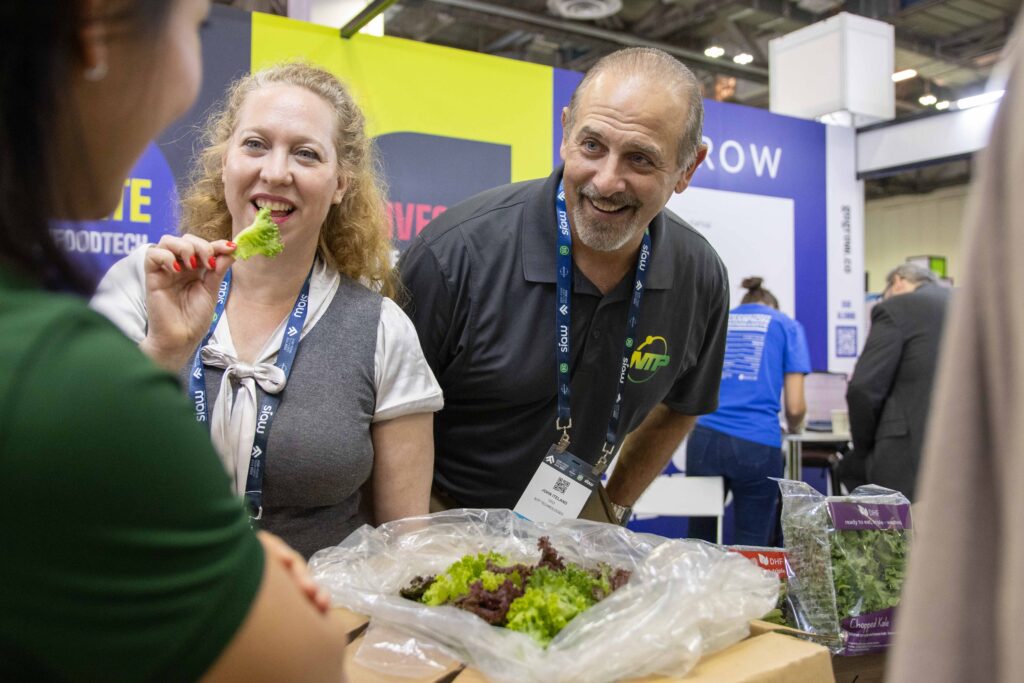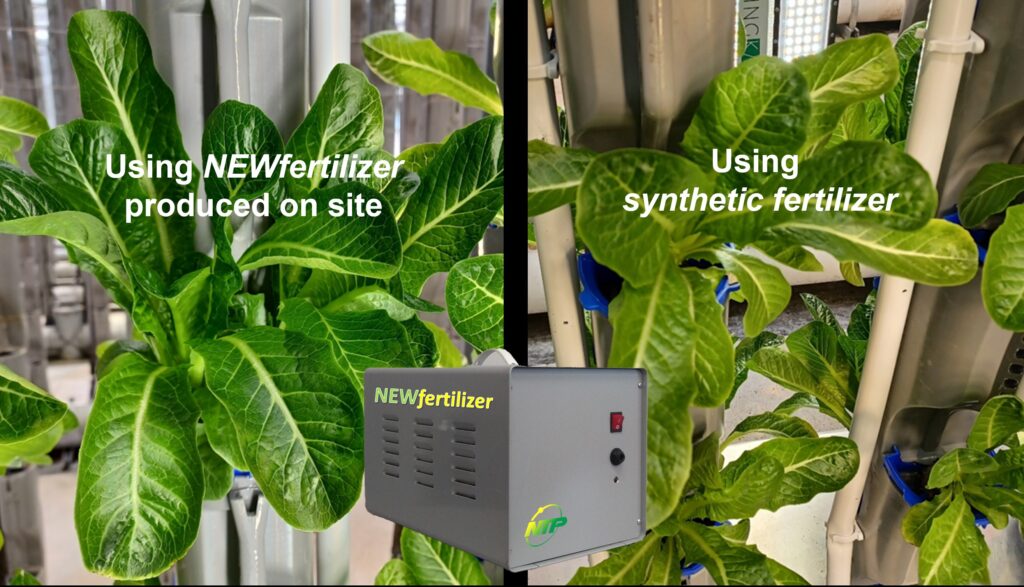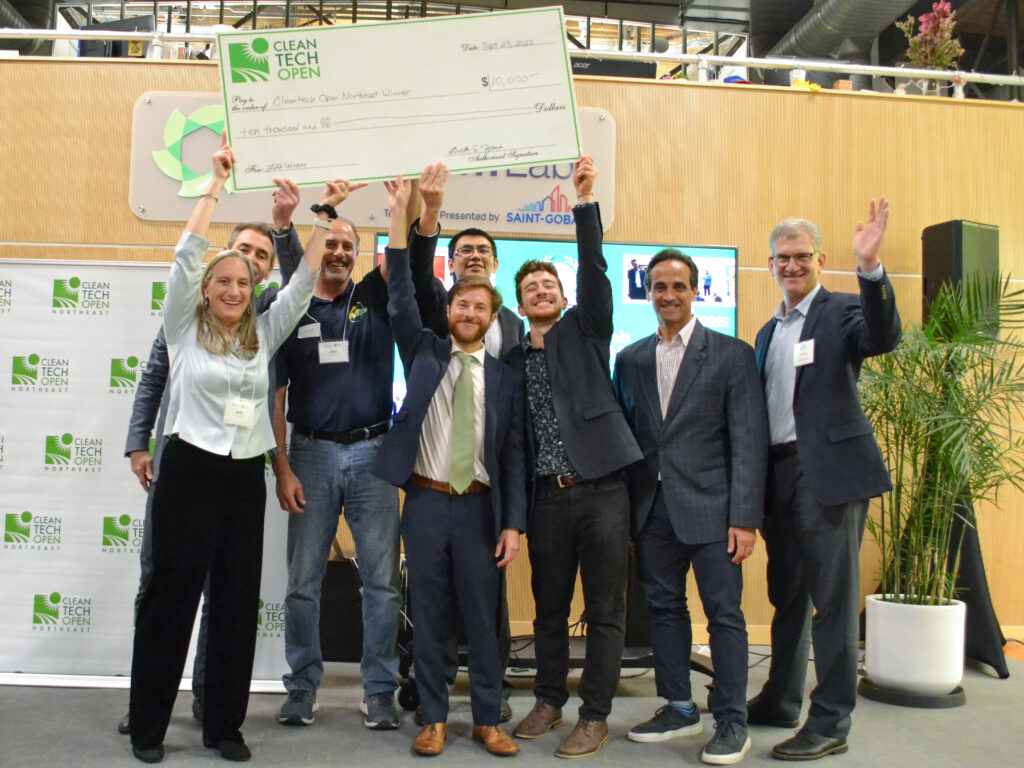Introducing John Ireland from NTP Technologies
Q: Can you briefly introduce yourself and your startup?
A: I’m John Ireland, CEO of NTP Technologies. We use non-thermal plasma technology to produce sustainable, affordable, salt-free nitrates on-site as an alternative to synthetic fertilizers. Our proprietary process requires only air and electricity as inputs, highlighting our commitment to environmental sustainability and innovation in agricultural practices.
Q: What inspired the idea behind your startup?
A: The concept for our technology is rooted in a method over a hundred years old, initially developed by Birkeland and Eyde. Despite its early promise, it became obsolete with the advent of the Haber-Bosch process due to its high electricity demands—a resource scarcely available at the time, especially in rural areas. However, the landscape has dramatically changed. With the widespread availability of electricity and advancements in technology, including solar energy and more efficient compressors, we saw a ripe opportunity to revisit and modernize this old technique. Our motivation was further fueled by the environmental toll of traditional fertilizer methods and the market’s volatility, highlighted by recent global events like the Ukraine conflict. These issues underscored the need for a solution that could localize and stabilize fertilizer production, turning operational costs into predictable capital investments, much like the solar industry has done for energy consumption.
Why CleanTech Open?
Q: How did CleanTech Open become part of your journey at NTP Technologies?
A: My connection with CleanTech Open started in 2012 when I became a mentor for their program, a role I fulfilled for almost a decade. By 2022, the tables had turned, and I found myself participating in the program with NTP Technologies. Having been on both sides of the CleanTech Open experience, I had a unique insight into what the program sought in its candidates, which proved advantageous. My previous ventures were diverse, but NTP Technologies stood out as a perfect fit for CleanTech Open due to our focus on reducing greenhouse gas emissions and improving agricultural practices. Our alignment with CleanTech Open’s values was further solidified when we became the first recipient of their Agricultural Award.
CleanTech Open played a pivotal role in preparing us for the broader business world. It offered invaluable mentorship that covered various business aspects, from financial management to crafting a compelling pitch deck and understanding sustainability goals. This comprehensive support was instrumental in refining our business model, especially in clarifying our pitch and identifying our target market.
One of the critical lessons CleanTech Open taught me was the importance of external perspectives. Even with my background in mentoring, I found it immensely beneficial to have that outside view on my project. It helped identify potential flaws and areas for improvement that I missed, being too close to my venture. This mentorship and guidance were crucial in making our value proposition clearer and more focused, significantly impacting our approach to the market and future planning.
Moreover, CleanTech Open emphasized the importance of realistic and strategic planning. It’s one thing to have an ambitious vision for your company, but another to understand the steps required to achieve it. This pragmatic approach encouraged me to think critically about NTP Technologies’ path from an idea to a viable business, considering necessary pivots and strategic decisions to gain traction within the market and attract venture capital interest. CleanTech Open has been instrumental in helping us navigate these challenges, ensuring we’re not just dreamers but doers with a clear plan for growth and impact.
The Application Process
Q: Can you describe the CleanTech Open application process and any insider knowledge you had that helped?
A: The application process for CleanTech Open is designed to identify companies that are not only in the right market but also show a willingness to engage fully with the program. Being coachable is key. When filling out the application, it’s crucial to demonstrate that you’ve moved beyond just having an idea; you need to have thought through your problem and solution to some extent. Most applicants are granted an interview, where you’re expected to discuss your idea, market potential, and openness to feedback and coaching.
The interview involves conversations with three or four representatives from CleanTech Open, where they delve into how you conceived your idea, your market understanding, and your flexibility regarding your approach. They’re not looking for perfection but for potential success indicators such as willingness to learn, accept mentorship, and adapt. CleanTech Open’s goal is to have everyone who enters the program graduate, not to weed people out but to cultivate successful entrepreneurs who can contribute to their ongoing success.
Being selected for the program hinges on demonstrating your readiness to engage and improve, rather than presenting a flawless business model. Post-selection, matching with a mentor is a critical step, where effort and thoughtfulness in understanding your needs pay off significantly. The program emphasizes the importance of active participation and investment in the learning process, suggesting that the effort you put into your application and engagement with the program will directly impact your success and business development. As a mentor and participant, I’ve seen firsthand that the value derived from CleanTech Open is proportional to the effort invested, promising substantial learning and business advancement by the program’s end.
Funding at CleanTech Open
Q: Once accepted into CleanTech Open, do participants immediately receive funding?
A: In CleanTech Open, funding operates quite differently from what some might expect. While there are prize awards up for grabs for those who excel within the program, immediate funding upon entry is not the case. For example, my team was fortunate to win in the Northeast and also clinched the Ag competition, progressing to Nationals. At the National level, there’s a $50,000 safe award for the overall winner across the country. However, entering the program with the sole aim of securing funding might lead to disappointment.
CleanTech Open is fundamentally an accelerator, not a venture capital fund ready to invest cash upfront. The main goal is to prepare startups for success, guiding them from their initial concept (point A) to being investment-ready (point B). The program’s focus is on equipping participants with the necessary skills, knowledge, and mentorship to enhance their business propositions. Therefore, while there is potential for financial reward, the primary value of CleanTech Open lies in its capacity to make startups more appealing to investors. Success in the program means leaving with a compelling pitch and a business model that can attract significant investment in the subsequent stages of your venture’s growth.
A Typical Day in the Accelerator
Q: What was a typical day like once you were accepted into CleanTech Open?
A: Reflecting on a typical day might not capture the essence of the CleanTech Open experience; it’s more illustrative to consider a weekly perspective. The program is structured around weekly meetings, each focusing on different key areas such as finance, market fit, and sustainability, among others. There are about eight or nine main topics covered throughout the program, with each week dedicated to a specific theme.
Participants are expected to engage with the weekly tasks and produce deliverables, emphasizing the importance of keeping pace and not leaving everything to the last minute. For instance, in a week focused on sustainability, CleanTech Open provides resources like webinars and connects you with a sustainability mentor to work on that week’s deliverables, typically guided by a worksheet to help structure your approach.
The process encourages continuous work on your pitch deck as well, integrating each week’s learning into the relevant section of your presentation. This approach helps in creating a cohesive story for your pitch, making sure that it’s not rushed at the end but developed thoughtfully over time with the input from various program activities.
Insights and Improvements on the CleanTech Open Program
Q: What aspects of the CleanTech Open program did you find underwhelming or in need of improvement?
A: While CleanTech Open continuously evolves and improves, there have been areas that need refinement. Initially, the program felt a bit unorganized, but it has significantly improved over time, especially with the introduction of more structured geographic areas and a clearer national presence. One notable challenge has been the pace at the beginning of the program, which can make participants feel like they’re playing catch-up if team and mentor assignments are delayed.
A crucial part of the process involves being proactive in connecting with mentors and engaging with the program’s resources. Technology and platform issues have been addressed over the years, making submission and feedback processes smoother. The introduction of detailed rubrics for judging has clarified expectations and helped participants better prepare for pitches.
Q: Did you face any challenges during the program? How did you overcome them?
A: A personal challenge I encountered was aligning my agriculture-focused venture with CleanTech Open’s traditionally tech-oriented audience and sponsors. Although CleanTech Open is broadening its scope to include more agriculture and agtech interests, fostering a more relevant network for participants in these areas could further enhance the program’s impact and the value it delivers to startups in the agricultural sector.
Final Advice for CleanTech Open Applicants
Q: Do you have any final pieces of advice for anyone looking to apply to this program?
A: My key piece of advice for prospective applicants is to be punctual and dedicated throughout the program. The commitment you show will directly benefit your progress and development. It reminds me of the lessons in math class that seem irrelevant at the time but prove to be invaluable later in life. This analogy extends to the CleanTech Open experience—trust in the process, even if its immediate relevance isn’t clear. Over time, you’ll understand the value of each step you’ve taken.
When applying, it’s crucial to be proactive and thoughtful. Take your time to reflect on and refine your application, ensuring it accurately represents your venture and your vision. Don’t hesitate to revise your application a few times; a well-considered submission can significantly impact your acceptance into the program. Remember, the effort and attention to detail you put in from the beginning set the tone for your entire journey with CleanTech Open.
